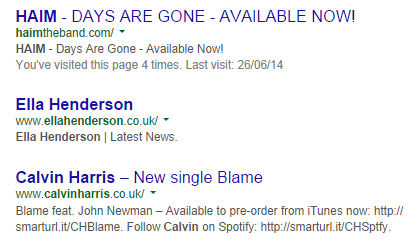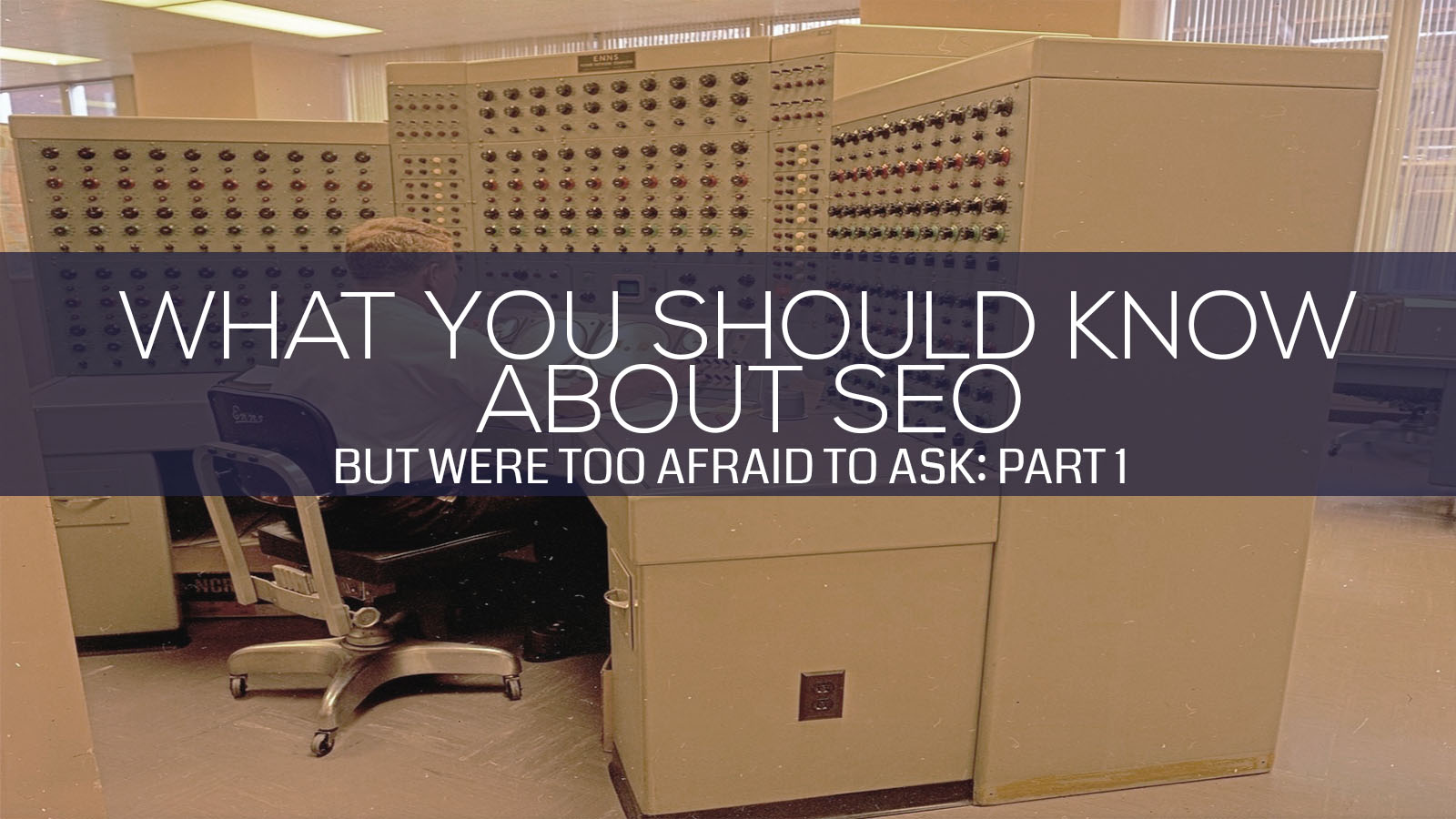You’ve just redecorated the living room. You invite everyone round to have a look. They all say it’s great. One person though notices that the big expensive picture you have hanging up isn’t hanging straight, your sofa is facing the wrong way and a plug socket would be better set five inches to the left. Welcome to the mind of a digital marketer who has just come across your site for the first time.
In our line of work it is very simple to see mistakes and point out flaws that can be quickly fixed. A lot of very simple SEO mistakes are often oversights that aren’t fully realised until someone comes along and points it out. For a lot of companies who we talk to there are plenty of terms that are part of everyday language for us but are foreign to them.So what can we do to make understanding the phrases we use easier? Well we can start by defining them of course.
I’m going to break down the fundamental building blocks of what SEO is by listing 10 key terms everyone in charge of a website should know when talking about SEO. This morning we’re starting with 1 to 5 and looking at the thought process behind what you want on a site and what little features can have a massive impact on its performance.
1.Keywords
Everything is a keyword. Drill that thought into your head from the very first second you’re considering what you want to sell. There is a really good way you can understand just how important it is. Try and search for a product but make sure that you don’t use any words that would easily describe that product. For example, try searching for anything on a McDonalds menu (Quarter Pounder/Happy Meal/ Big Mac) without using those keywords. You have to get the wording right otherwise your search for “large cheeseburger” won’t give you what you want, but “bigger sized burger that has cheese” will.

2.Search Volume
Does the world need what you have and does it even want it? You could create a product that serves a great use, or none at all. You won’t really know for sure unless you figure out what the search volume is like. Using a tool like Google Adwords is great for finding out just how many people out there are searching for keywords related to your site. You’ll be able to see if 10, 100 or 10,000 people are actively looking for your help and what your chances of making any money from that are.
3.Site Structure
You want a potential customer to get from A to B when using your site. Simple. Making that journey easy should be a top priority. Your homepage is the front door of the supermarket and it’s up to you to make sure that that customer knows what aisle they should be heading to without doubling back at every other section they come across. And you always want that structure, in the form of the menu, to be in the same place across the site. You wouldn’t find yourself walking to the back of a supermarket to get milk and then turning round to see every aisle has randomly changed order or disappeared, so make sure a website doesn’t do this.

4.Title Tags
The best visual guide you’ll have in the browser, title tags play a big role in navigating a user between windows. If you run a small e-commerce site, having the right tags is of massive importance as it helps define what each page someone is looking at is. Imagine this image above from ASOS saying nothing but ‘ASOS Mens Hats’ as the title tag for every product in the category. You would be a wreck trying to compare your options and probably just give up, no matter how a good deal you could probably find. Little touches like this are almost always overlooked and can make the biggest difference.

5.Meta Descriptions
Think of the title tag as the chapter title and the meta description as the opening line. Meta Descriptions are usually visible on a page someone would be on, but they are also extremely important at helping to get the message across of what your site is and what it does. A good site needs relevant, concise and keyword focussed meta descriptions in order to tell the potential user searching what they’re going to get. The only time you’ll ever really see terrible meta descriptions is on musician websites where they’re probably just too cool to care about SEO (like HAIM), concerned with getting a name out there (like Ella Henderson) or grabbing money at every opportunity possible (like World’s Richest DJ Calvin Harris). The Meta is integral to telling organic users who come across your site a little more about what they’re in for.
Later on we’ll be looking at points 6 to 10 of what you need to know about SEO and what these elements do and how they affect (and improve) a website.

